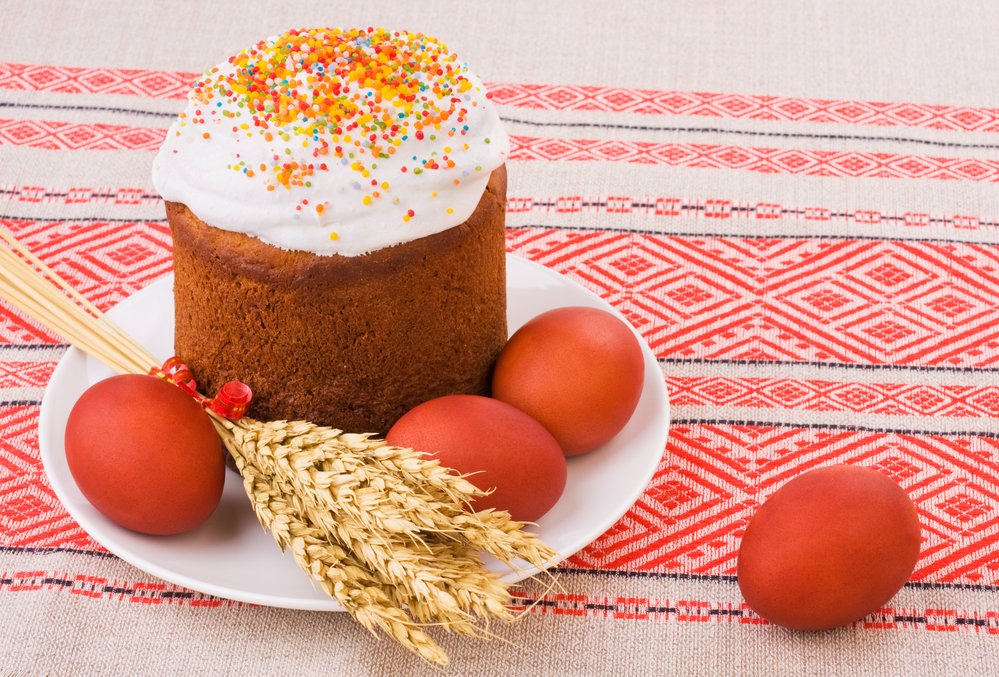Orthodox Easter
Easter, known in Russia as Paskha, is the most important date on the Orthodox calendar. Usually, it takes place about two weeks later than Easter in the West, as the church uses the Julian rather than the Gregorian calendar. A candlelit service is held late on Easter Saturday and as midnight strikes, the bells toll to mark the resurrection of Christ. The sung mass which follows can last until dawn.
Easter marks the end of a forty day fast that commenced at the time of the Maslenitsa; meat, dairy, fish and alcohol have been off-limits to the faithful. The kids have eggs and everyone loves kulich, a traditional cake packed full of fruit and nuts, as well as paskha, a cream cheese cake. Everyone tucks in as soon as they get up; why wait any longer for these sweet treats? If there are any leftovers, Russians will go and visit friends and family to share what’s over. There’s no reason why that can’t be you.

Easter marks the end of a forty day fast that commenced at the time of the Maslenitsa; meat, dairy, fish and alcohol have been off-limits to the faithful. The kids have eggs and everyone loves kulich, a traditional cake packed full of fruit and nuts, as well as paskha, a cream cheese cake. Everyone tucks in as soon as they get up; why wait any longer for these sweet treats? If there are any leftovers, Russians will go and visit friends and family to share what’s over. There’s no reason why that can’t be you.
